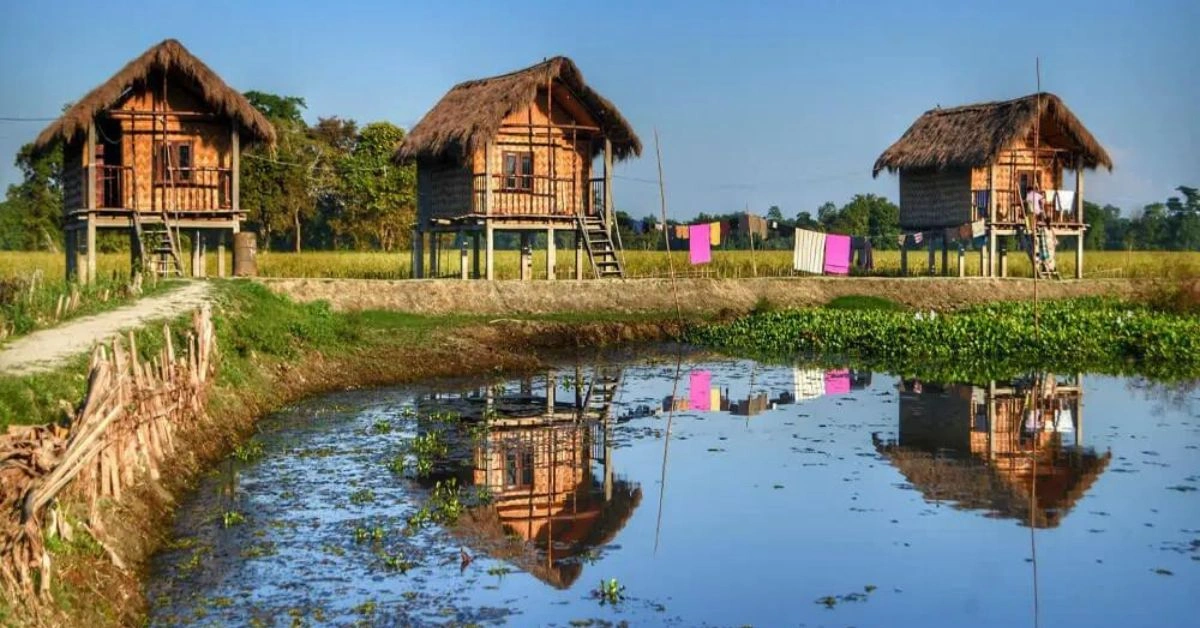India is a land of many colors, cultures, and traditions. It offers travelers a chance to experience something truly unique: a journey into its rural heartlands. These villages are where people live simple lives, following old customs and traditions. They’re surrounded by beautiful nature and offer a peaceful escape from the busy cities.
In this blog, we’ll share 10 of the best rural village tours in India. From the peaceful mountains of Himachal Pradesh to the colorful traditions of Rajasthan, these tours let you see how people in rural India live. You can meet local artisans, learn about their crafts, and even take part in ancient rituals. Whether you’re looking for adventure or simply want to relax, these tours will give you a memorable experience of India’s rich heritage.
1. Kumarakom Village, Kerala
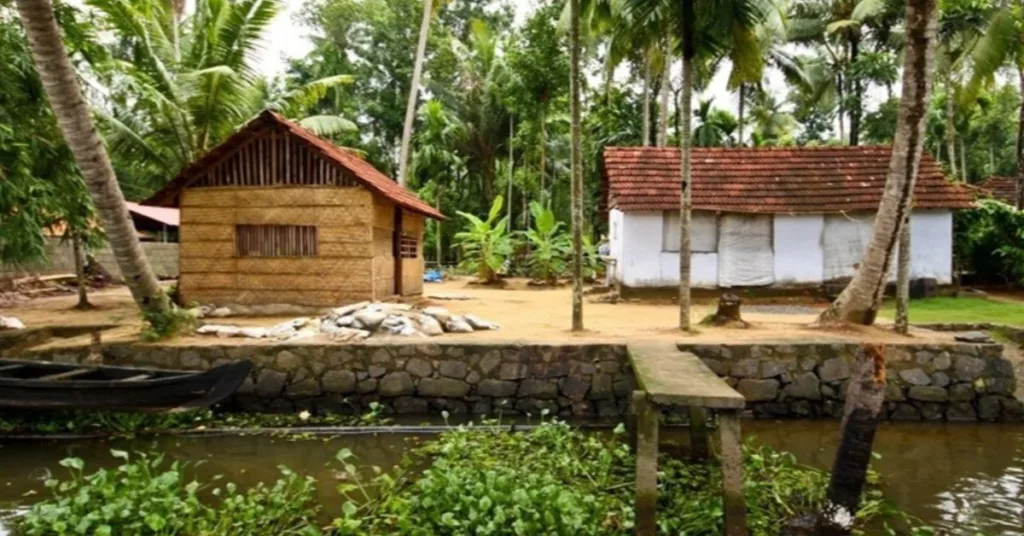
Kumarakom is a peaceful place in Kerala’s backwaters. It’s known for its beautiful green scenery and calm waterways. You can stay on traditional houseboats called Kettuvallams and experience rural life on the water. Take a boat ride through the backwaters, watch local people fishing, and explore the Kumarakom Bird Sanctuary. You can also learn to cook traditional Kerala food and enjoy delicious local meals.
2. Sanaswadi, Maharashtra
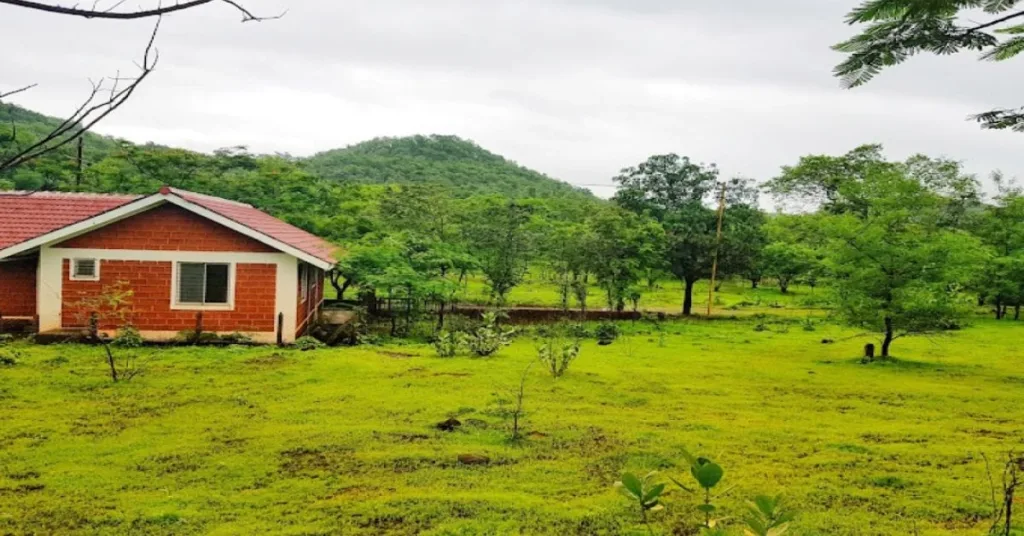
Sanaswadi is a beautiful village in Maharashtra. It’s known for its farms and traditional farming ways. You can learn about rural farming by helping with things like planting and harvesting crops. There are also local markets where you can find handmade textiles and pottery. The people in Sanaswadi are friendly and welcoming, and you can see how people in Maharashtra live in the countryside.
3. Nawalgarh, Rajasthan
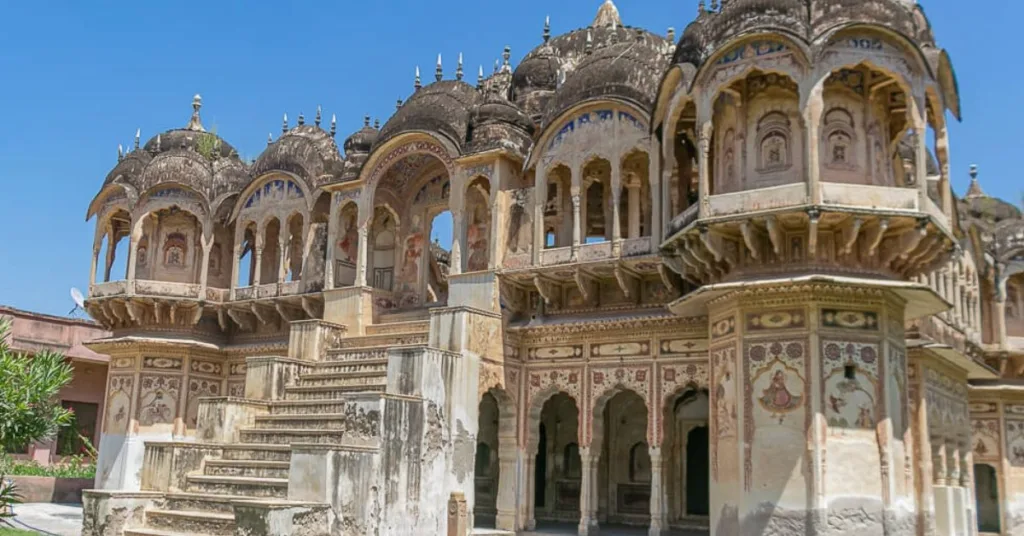
Nawalgarh is a historic village in Rajasthan, often called the ‘Land of Havelis’. Havelis are beautiful mansions with colorful paintings. The village is a great place to see traditional Rajasthani architecture and art. You can take guided tours of the havelis and visit local workshops. You can also enjoy the village’s festivals, try local food, and meet skilled artisans who make things like block prints and pottery.
4. Guna, Madhya Pradesh
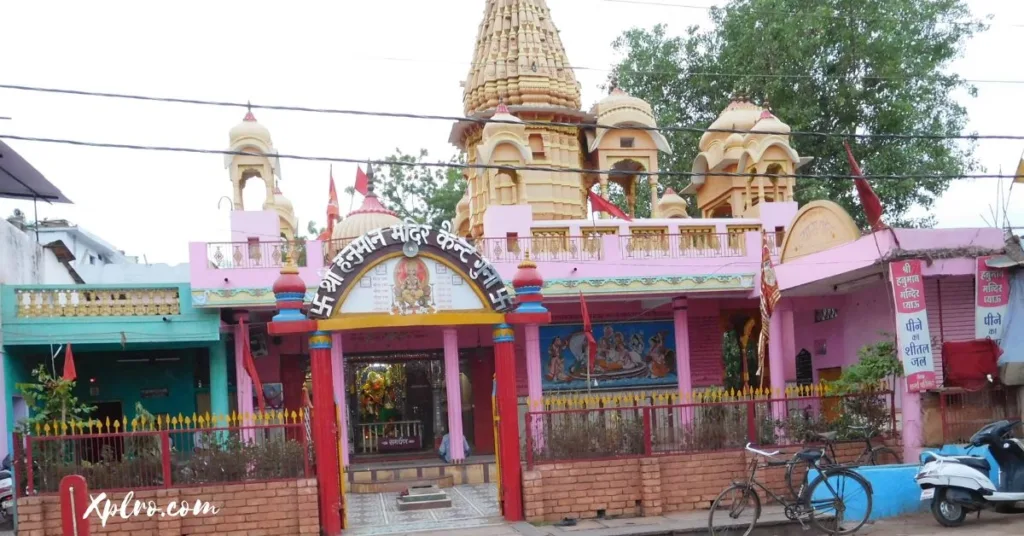
Guna is a small village in Madhya Pradesh. It’s a great place to experience rural life and see the beautiful Chambal Valley. The village is known for its traditional farming and wildlife conservation. You can do eco-tourism activities like nature walks and wildlife safaris in nearby reserves. The local people are committed to protecting the environment and living sustainably, which shows how people can balance their needs with protecting nature.
5. Majuli, Assam
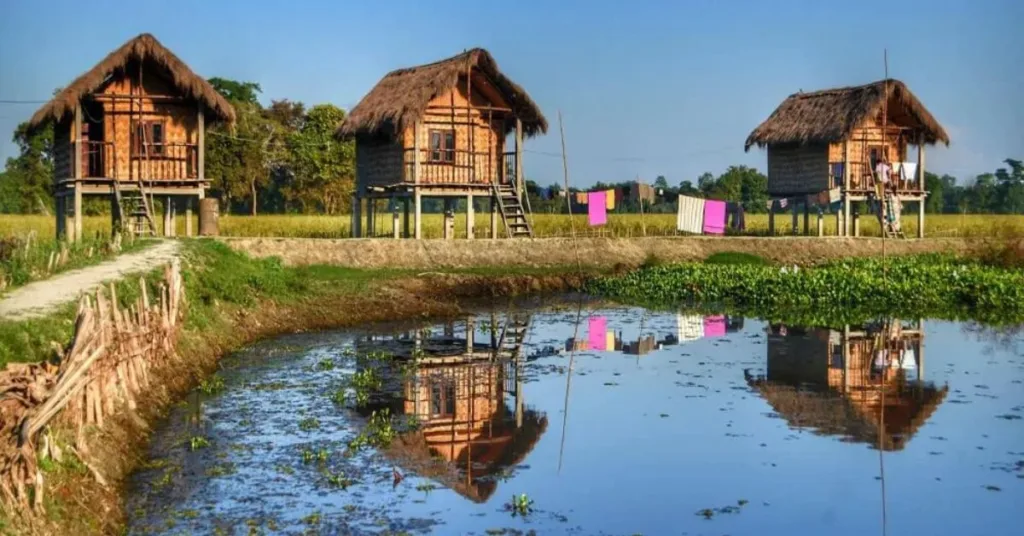
Majuli is the world’s largest river island, located on the Brahmaputra River in Assam. It’s a cultural and spiritual center, known for its festivals, dances, and ancient monasteries called Satras. You can explore Majuli’s culture through local arts and crafts, participate in traditional rituals, and enjoy the beautiful scenery of rice fields and rivers. Majuli’s rich heritage and community-focused tourism offer a great way to experience rural Assamese life.
6. Chopta, Uttarakhand
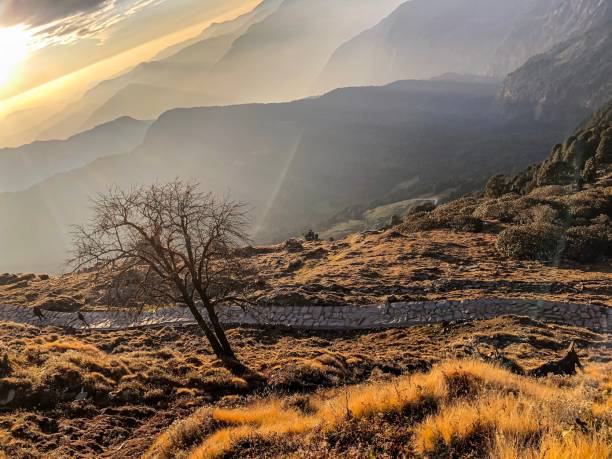
Chopta is a peaceful village in Uttarakhand’s Himalayas, often called the ‘Mini Switzerland of India’. It’s a great starting point for treks and offers beautiful views of the snow-covered mountains. You can trek to Tungnath Temple and Chandrashila Peak, explore the green meadows, and experience the warm hospitality of the Garhwali people. Chopta’s peaceful atmosphere and stunning scenery are a perfect escape from city life, making it a great place for nature lovers and adventure seekers.
7. Khejarla, Rajasthan
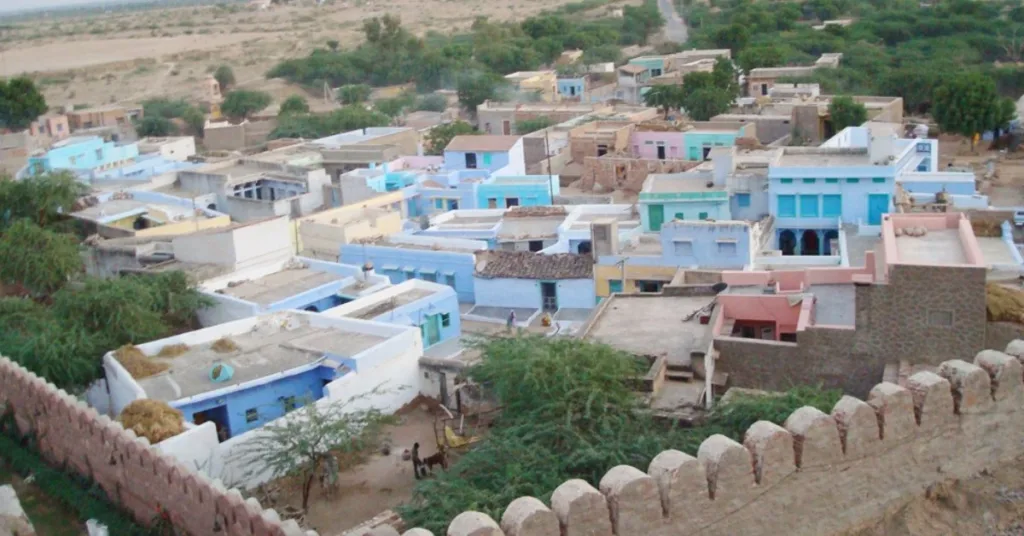
Khejarla is a small village in Rajasthan with a long history. The Khejarla Fort, built in the 16th century, gives you a taste of the region’s royal past. You can explore the fort’s beautiful architecture, enjoy traditional Rajasthani food, and take part in local festivals and cultural events. The village’s mix of history and rural traditions offers a unique and unforgettable experience.
8. Pondicherry Villages, Tamil Nadu
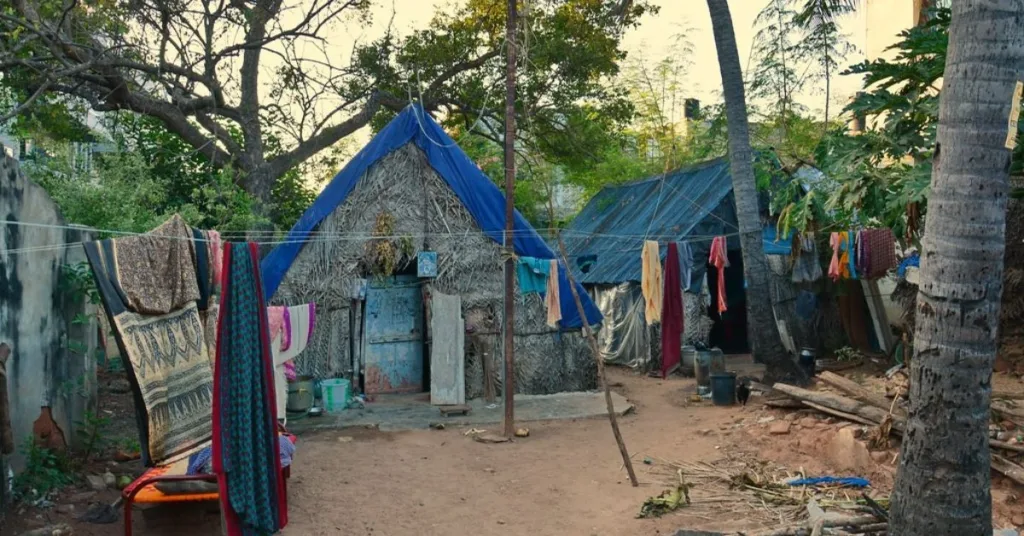
The villages around Pondicherry, like Auroville and Kottakuppam, show a mix of French colonial influence and traditional Tamil culture. Auroville is an international community focused on sustainable living. Visitors can learn about alternative lifestyles and community projects, explore eco-friendly initiatives, take part in workshops, and interact with residents. Kottakuppam offers a more traditional rural experience with its colorful local markets and cultural festivals.
9. Sattal, Uttarakhand
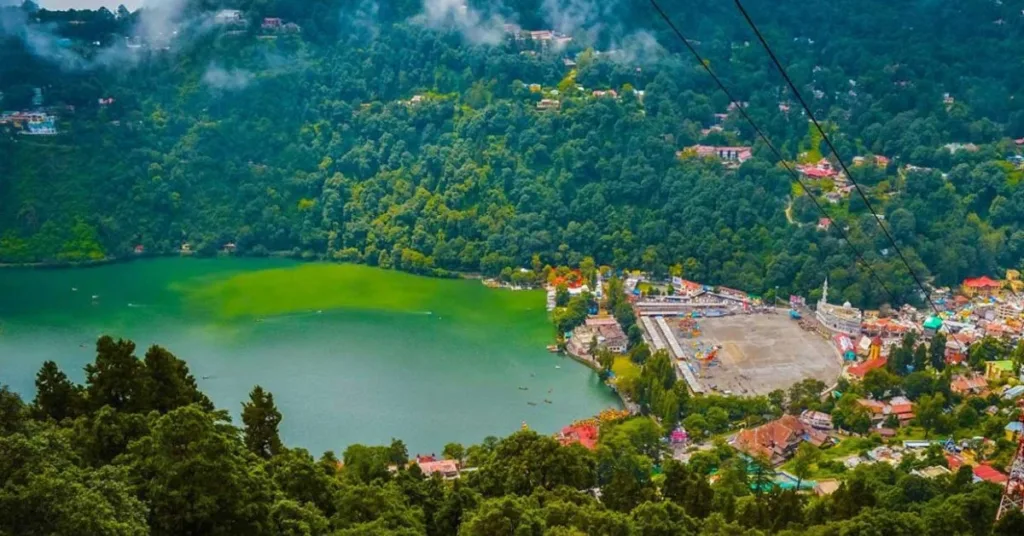
Sattal is a beautiful village in Uttarakhand with seven connected lakes. It’s surrounded by forests and hills. Sattal is known for its pretty scenery and is a great place to watch birds. You can enjoy boating on the lakes, explore local trails, and learn about traditional crafts. The peaceful atmosphere and natural beauty of Sattal make it a perfect place to relax and recharge.
10. Hampi, Karnataka
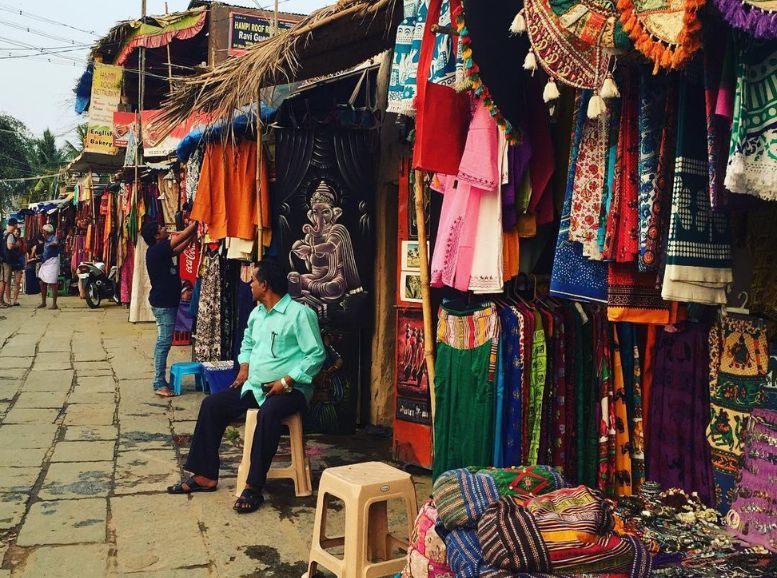
Hampi is a historic village in Karnataka that’s a UNESCO World Heritage Site. It’s known for its ancient ruins and rich cultural heritage. The village was once the capital of the Vijayanagara Empire, and you can still see amazing temples, palaces, and markets. Visitors can explore the historical sites, enjoy local festivals, and experience the unique mix of history and rural life in Hampi. Hampi’s rich heritage and archaeological wonders offer a fascinating glimpse into India’s past.
tips for rural village tours in India
1. Plan Your Trip for rural village tours in India
- Learn about the village’s history, culture, and traditions.
- Check the best time to visit, considering weather and local festivals.
2. Pack Smart for in rural village tours in India
- Wear comfortable, modest clothing suitable for the weather.
- Bring sturdy shoes, a hat, sunscreen, insect repellent, and a reusable water bottle.
3. Be Respectful
- Adhere to local dress codes and customs.
- Ask permission before taking photos.
4. Stay Healthy and Safe
- Get necessary vaccinations and health precautions.
- Carry a first-aid kit.
- Drink bottled water and eat freshly prepared food.
5. Engage with the Community
- Learn about their way of life and participate in local activities.
- Support the local economy by buying handmade goods or local produce.
6. Travel Responsibly
- Leave no trace and minimize your impact on the environment.
- Choose eco-friendly accommodations and tours.
7. Stay Connected
- Be prepared for limited connectivity.
- Inform family and friends of your plans and have offline maps or a local SIM card.
- Keep a list of local emergency contacts and your accommodation’s contact information.
8. Be Culturally Sensitive
- Learn a few basic phrases in the local language.
- Familiarize yourself with local etiquette.
9. Accommodation and Transport
- Book accommodation and transport in advance.
- Consider staying in local guesthouses or homestays.
- Be prepared for basic or limited transportation options.
10. Be Flexible and Patient for in rural village tours in India
- Rural areas may have unpredictable conditions or slower-paced services.
- Approach your journey with flexibility and patience to fully enjoy the experience.
Conclusion
Immerse yourself in the rich tapestry of India beyond the bustling cities with a rural village tour on Xplro.com! Escape to the tranquil backwaters of Kerala on a houseboat, or explore the historical grandeur of Hampi’s ancient ruins. Each village on our curated tours offers a unique window into India’s diverse culture, from traditional crafts and vibrant festivals to breathtaking landscapes and age-old traditions. Whether you seek the serenity of nature or the charm of rural life, these unforgettable journeys will connect you with the true essence of India. Discover the hidden gems of rural India and embark on an enriching adventure with Xplro.com!
FAQs
1. What is involved in rural village tours in India?
- Rural village tours in India offer an immersive experience into the daily lives, traditions, and cultures of local communities. These tours provide opportunities to explore traditional crafts, agricultural practices, local festivals, and scenic landscapes away from urban centers.
2. How can I select the best rural village tour in India for my interests?
- To choose the ideal rural village tour in India, identify your interests—whether it’s traditional arts and crafts, local festivals, agricultural experiences, or natural beauty. Research various villages based on these interests, check reviews, and consult with travel agencies that specialize in rural tourism.
3. What should I pack for a rural village tour in India?
- For a rural village tour in India, pack comfortable, modest clothing that respects local customs. Lightweight, breathable fabrics are suitable for warm climates, while layering is helpful in cooler regions. Include sturdy walking shoes, a hat, sunscreen, insect repellent, and a reusable water bottle.
4. Are rural village tours in India safe?
- Rural village tours in India are generally safe, but standard travel precautions should be observed. Follow local guidelines, respect cultural norms, and remain aware of your surroundings. Taking health precautions like vaccinations and practicing safe food and water habits are also important.
5. What health measures should I consider before embarking on a rural village tour in India?
- Before a rural village tour in India, ensure you have the recommended vaccinations. Carry a basic first-aid kit and consult your healthcare provider about any specific health concerns. Be cautious about food and water hygiene to avoid any potential issues.
6. Can I find quality accommodations in rural villages in India?
- Yes, many rural villages in India offer accommodations such as guesthouses, homestays, and eco-lodges that provide an authentic experience. It’s advisable to book accommodations in advance, especially during peak travel seasons or local festivals.
7. How can I communicate with locals during rural village tours in India if I don’t speak the language?
- Learning a few key phrases in the local language can be beneficial. Many rural areas also have English-speaking guides or local contacts who can assist with communication. Translation apps can also be a handy tool for overcoming language barriers.
8. What activities can I expect on rural village tours in India?
- Rural village tours in India offer a range of activities, including participation in traditional crafts, attending local festivals, observing agricultural practices, exploring natural landscapes, and engaging with local families to learn about their daily routines.
9. How can I support the local economy during my rural village tour in India?
- Support the local economy by purchasing handmade crafts, souvenirs, or local produce. It’s important to pay fair prices and avoid excessive bargaining. Additionally, dining at local eateries and staying in village accommodations contribute to the local economy.
10. Are rural village tours in India appropriate for families with children?
- Yes, rural village tours in India can be enjoyable for families. Activities such as nature walks, traditional cooking classes, and local festivals can be engaging for children. Ensure that the tour is family-friendly and consider any specific needs or interests of your children.
11. What should I do if I encounter an emergency during my rural village tour in India?
- Keep a list of emergency contacts, including local medical facilities and your accommodation’s contact information. Inform family or friends of your travel plans. In rural areas with limited connectivity, having offline maps or a local SIM card can be helpful.
12. How can I travel responsibly on rural village tours in India?
- Travel responsibly by adhering to eco-tourism principles. Minimize your environmental impact, dispose of waste properly, avoid disturbing wildlife, and respect local customs and traditions. Choose tour operators who emphasize sustainability and community welfare.


